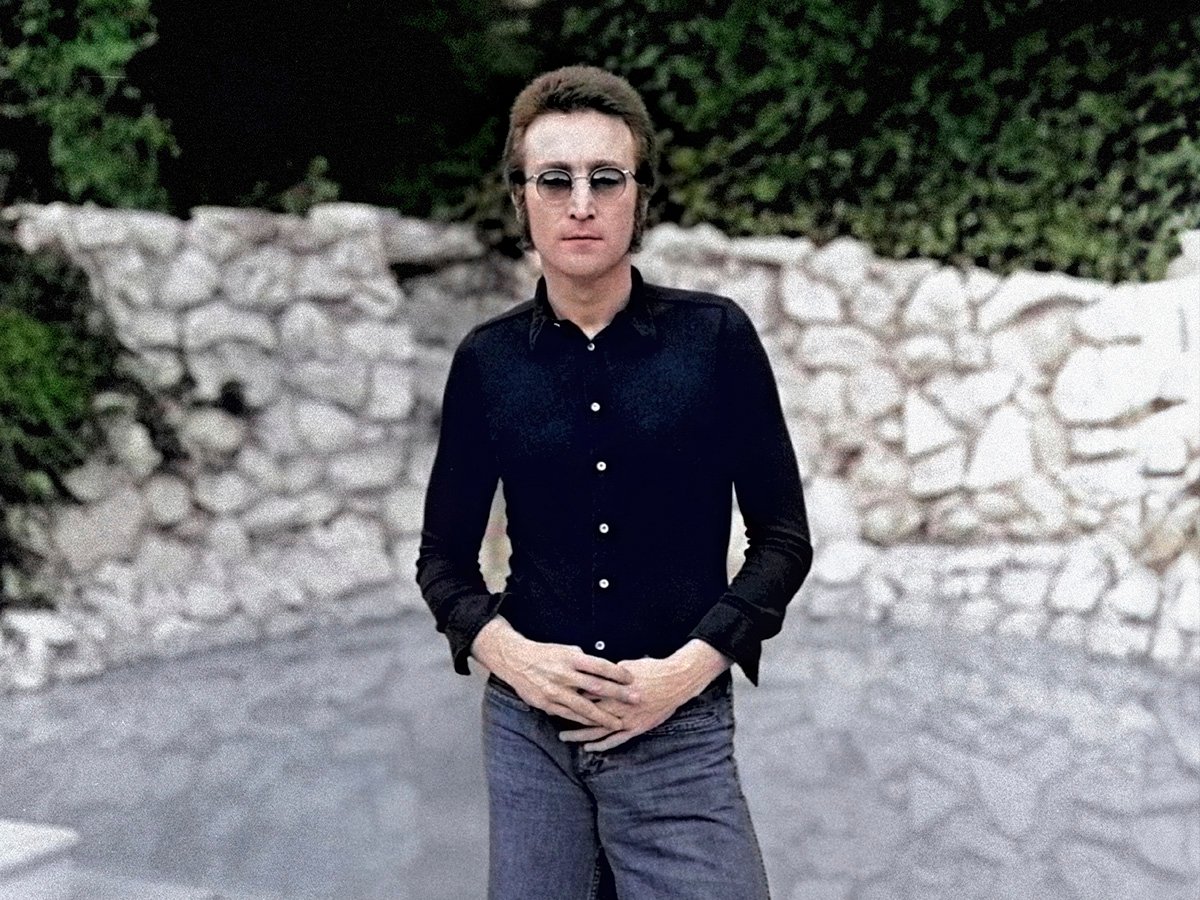John Lennon’s ‘#9 Dream’: The Story Behind the Mysterious Lyrics and Dreamlike Composition
John Lennon’s song ‘#9 Dream’ stands out as one of the most captivating tracks from his fifth studio album, Walls and Bridges. Released in 1974, the record was crafted during Lennon’s infamous “Lost Weekend,” a period when he temporarily separated from Yoko Ono and had an affair with May Pang, his personal assistant. This chaotic time in Lennon’s life spurred intense creativity, giving birth to several notable tracks, but ‘#9 Dream’ remains one of the most enigmatic and beloved.
The track carries a dreamlike quality, built on Lennon’s signature songwriting style, where he frequently used key changes and unusual modulations. This particular song features a modulation from a major scale to a minor-key chord mid-verse, creating an ethereal mood. The string arrangement adds to the otherworldly feel, while the chorus takes listeners to another dimension. A significant tonal shift—jumping up three whole tones—happens just before Lennon sings the now-famous, mysterious phrase, “Ah bowakawa, pousse pousse.”
The Dream That Inspired ‘#9 Dream’
The central intrigue around ‘#9 Dream’ lies in the strange lyrics Lennon sings during the chorus. “Ah bowakawa, pousse pousse” has puzzled listeners since the song’s release. For years, fans have speculated about the meaning and origin of these words. Some initially thought Lennon might have drawn inspiration from East Asian languages, given his close relationship with May Pang, who was of Chinese-American descent, and his marriage to Yoko Ono, a native Japanese speaker.
However, these lyrics don’t belong to any known language. As May Pang recalls, Lennon revealed that the words came directly from a dream he had. He woke up, scribbled the mysterious phrase down, and composed the accompanying melody. Even though Lennon himself didn’t understand what “Ah bowakawa, pousse pousse” meant, he was struck by its beauty and decided to incorporate it into the song.
Controversy and Lyrical Changes
Initially, Lennon pronounced the word “pousse” as something closer to “pussy,” which caused some controversy. At the time, Capitol Records attempted to censor the lyrics, arguing that they could be interpreted as obscene. In response, Lori Burton, a backing vocalist and the wife of Lennon’s sound engineer, claimed that the phrase was in a foreign language. To avoid further complications, Lennon altered the pronunciation slightly, adopting the softer, more French-sounding “poussé.”
Despite these adjustments, the mystery of the song’s lyrics persists, adding to its dreamlike and surreal nature. Lennon later downplayed the significance of the track, referring to it as a “songwriting exercise,” but his actions during its creation suggest otherwise. According to Pang, Lennon considered ‘#9 Dream’ one of his personal favorites and devoted more time to recording it than any other track on Walls and Bridges.
The Importance of the Number Nine
The title ‘#9 Dream’ carries deeper meaning for Lennon, particularly because of his long-standing connection with the number nine. The number had been significant to him since childhood, as Lennon was born on October 9th and frequently associated the number with good fortune. This fascination with the number can be seen throughout his career, including in the experimental ‘Revolution 9’ on The Beatles’ White Album.
Lennon may also have drawn inspiration from Bob Dylan’s earlier numbered songs, though ‘#9 Dream’ arguably captures the essence of a dream better than Dylan’s songs do. The track’s hypnotic quality, shifting keys, and obscure lyrics all work together to create a true sense of dreamlike wonder.
Covers and Legacy
Over the years, ‘#9 Dream’ has continued to inspire other artists. Notable covers by REM and José González have kept the song relevant, yet none of these renditions have managed to explain the enigmatic phrase Lennon sings in the chorus. Perhaps this is part of what makes ‘#9 Dream’ so enduring—its ability to elude definitive interpretation while still resonating deeply with listeners.
The mystery of the song, coupled with Lennon’s unique vocal delivery and the lush production, ensures that ‘#9 Dream’ remains a standout track in his solo catalog. Even after all these years, it captures the spirit of Lennon’s creativity during a particularly turbulent period in his life, offering a glimpse into his subconscious through music.
Frequently Asked Questions
1. What is the meaning behind John Lennon’s ‘#9 Dream’?
The song’s central phrase, “Ah bowakawa, pousse pousse,” came from a dream Lennon had. He didn’t know what it meant, but he included it in the song because he found the sound beautiful.
2. Did John Lennon write ‘#9 Dream’ during his separation from Yoko Ono?
Yes, ‘#9 Dream’ was written and recorded during Lennon’s “Lost Weekend,” a period in the mid-1970s when he was separated from Ono and living with May Pang in Los Angeles.
3. Is ‘#9 Dream’ about Yoko Ono?
While the song was written during Lennon’s separation from Yoko Ono, there’s no clear evidence that it was specifically about her. It was more a reflection of his dream experience and subconscious.
4. Why did Lennon choose the number nine for the song’s title?
Lennon had a lifelong connection with the number nine, considering it his lucky number. He was born on October 9, and the number frequently appeared at significant points in his life.
5. Did Capitol Records try to censor ‘#9 Dream’?
Yes, Capitol Records initially wanted to censor the lyrics due to the way Lennon pronounced “pousse,” fearing it sounded obscene. Lennon later adjusted the pronunciation to avoid issues.
6. Who performed backing vocals on ‘#9 Dream’?
May Pang and Lori Burton provided backing vocals on ‘#9 Dream’. May Pang’s voice can be heard throughout the track, adding to its ethereal atmosphere.
